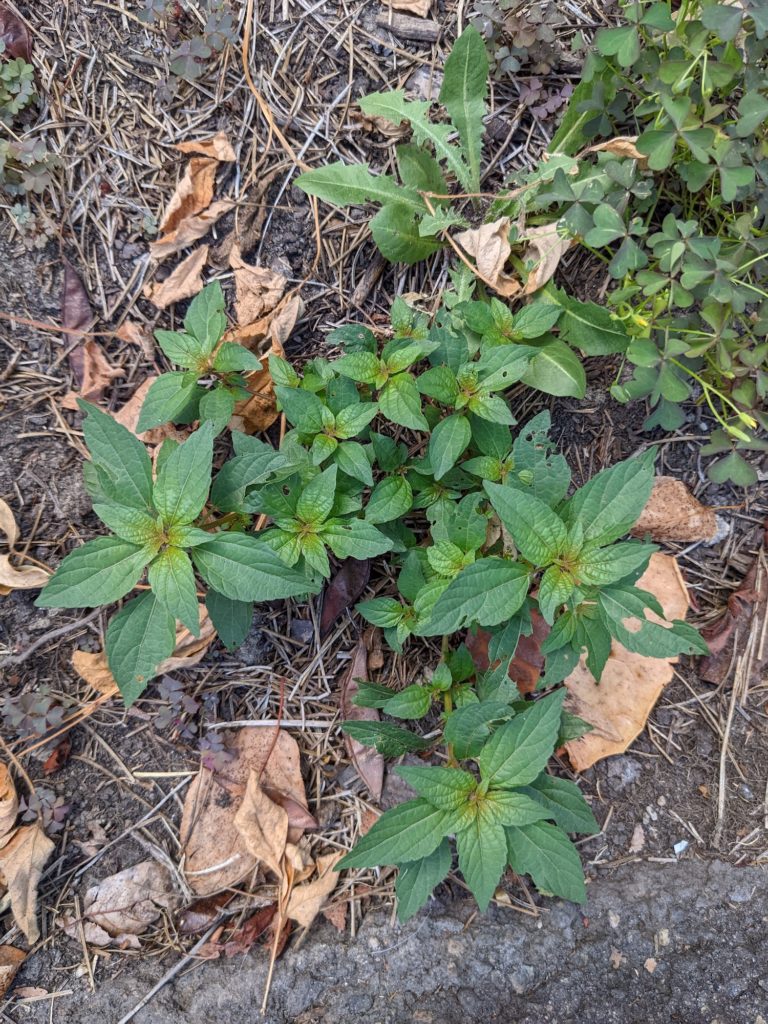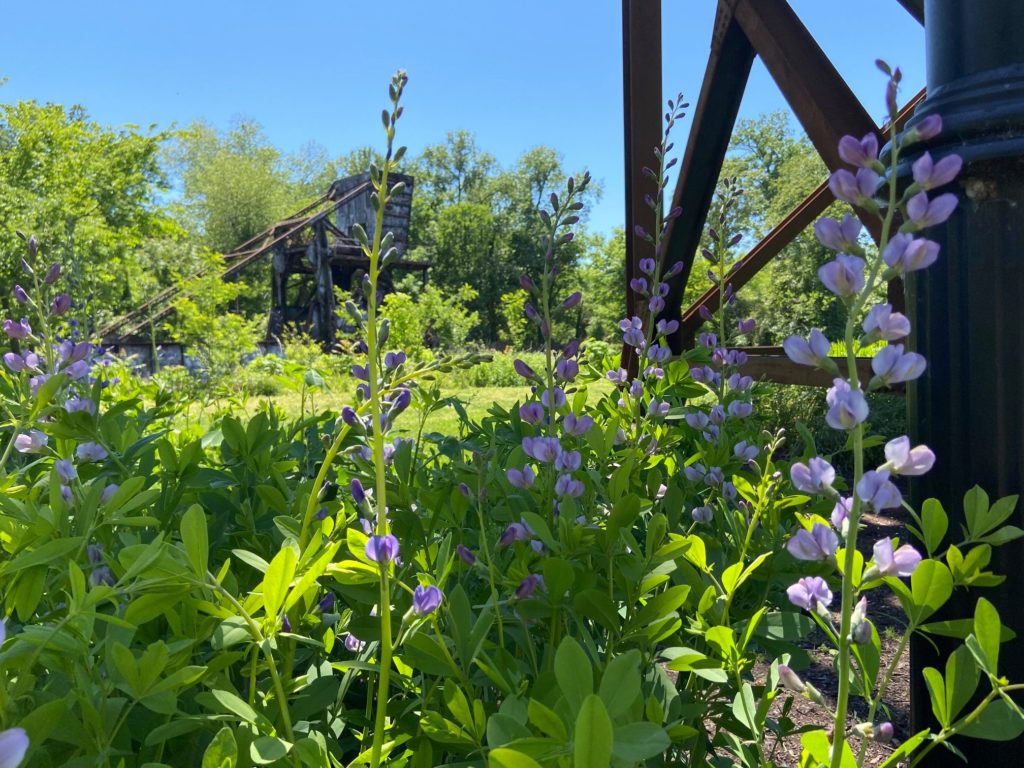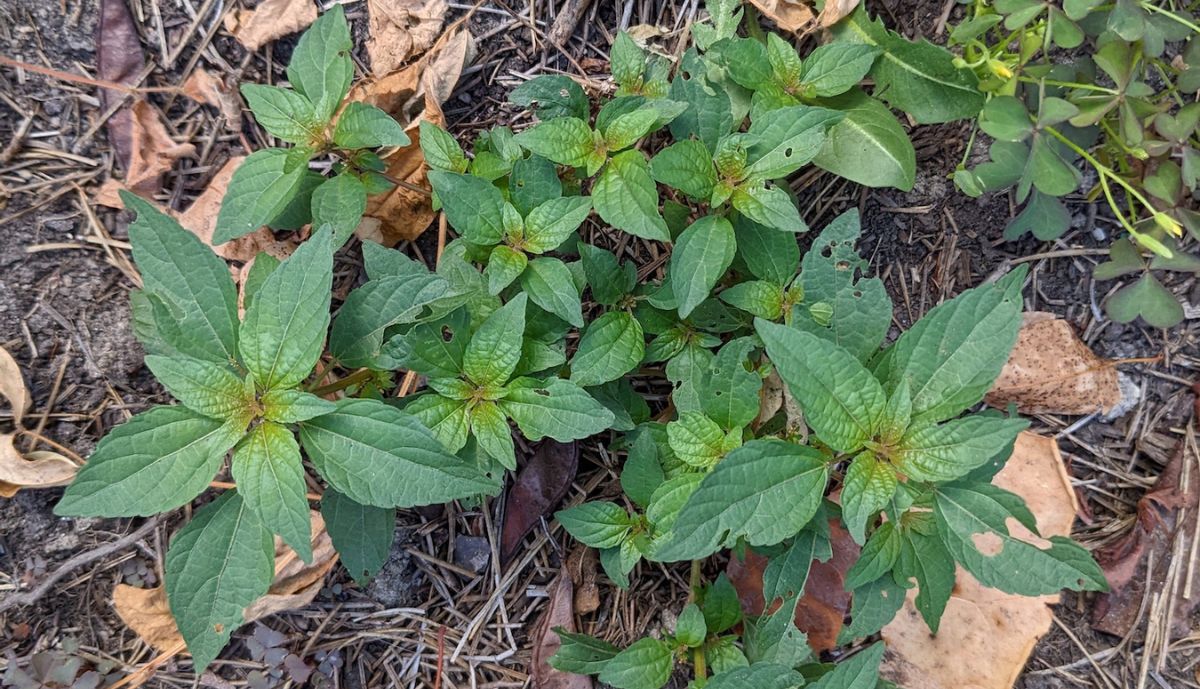Author: Mary Petres
A weed is a plant that is not valued where it is growing and is usually of vigorous growth, especially one that tends to overgrow or choke out more desirable plants. (Missouri Botanical Garden)
In our quest to maintain the gardens at Great Shiplock Park, the Low Line Gardens, and the Low Line Green without the use of herbicides, we use two main strategies. The first is to reduce the seed bank in the soil. Weeds by nature are strong competitors and possess traits such as enormous seed production capabilities which help guarantee the survival of future generations. The second strategy is to plant densely to reduce the sunlight reaching the ground. Most weeds/weed seeds prefer full sun to thrive.
Today we are going to talk about seed bank reduction.
Over the course of the last year and half we have learned what weeds are most likely to grow in specific areas of the gardens and at what time of year they will start to show themselves. Armed with this knowledge we coordinate garden maintenance tasks to either remove the plant entirely before it sets seed, or at a minimum, remove the flowers/seeds from the plant before the seeds mature and disperse.
Ultimately, we want to remove the entire plant to reduce competition for resources for our desirable plants. This method also creates room in the garden for the desirable plants to multiply.
 We began our war on seeds in March of 2021. We knew that it would be at least two years before we saw significant progress. By the time we started in March of 2021, the winter/early spring annuals had already set seed. While we did an excellent job of plant removal, we were too late to truly impact the seed bank. This fall/winter we should start to see the fruits of our efforts from fall of 2021 and winter/spring 2022. The pressure from the winter annuals should be markedly less.
We began our war on seeds in March of 2021. We knew that it would be at least two years before we saw significant progress. By the time we started in March of 2021, the winter/early spring annuals had already set seed. While we did an excellent job of plant removal, we were too late to truly impact the seed bank. This fall/winter we should start to see the fruits of our efforts from fall of 2021 and winter/spring 2022. The pressure from the winter annuals should be markedly less.
Last summer we saw a huge influx of boneset. While a native plant and often a cultivated plant, we found in the Low Line Gardens it was aggressive to the point of choking out other desirable plants. Thanks to a concentrated removal effort, we are seeing 80% less this year. As the gardens mature, we are also seeing the need to control seed drops on several of the “desirable” plants to control plant populations. The good news is that these seeds can often be deposited in other areas of the garden where we want to fill in space. We also love to share seedpods with our volunteers, to take home and plant in their gardens around the city.

While the results are not immediate, the seed bank reduction strategy is effective and can be accomplished without herbicides. Remember, gardening is a journey, a garden is not static nor would we want it to be. All the best with your own garden adventures. Please share your successes with us!


